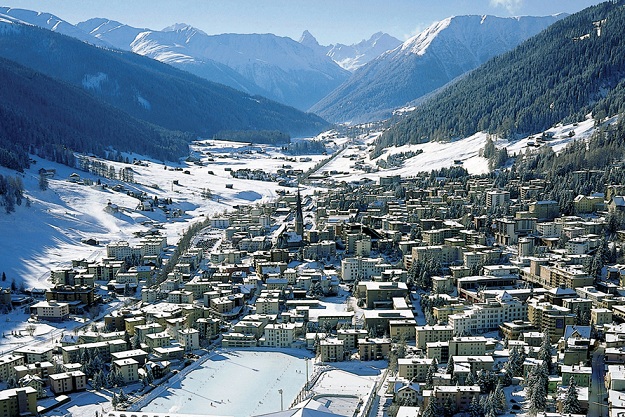Some of the most powerful people in the world descend on a Swiss ski resort each January for the World Economic Forum’s Annual Meeting. BBC presenter Nik Gowing never misses it – and he has a few tips for first timers

The Swiss town of Davos is one of the best ski resorts anywhere. For decades its slopes were famous for their grand sanatoria, which helped patients relieve their TB and asthma. But these days, the renown of Davos is not for skiing. It is for five days in late January each year. That is when anyone who’s anyone in global politics and business – and many who believe they should be – book out the hotels, guest houses and apartments to be heard and seen debating the global issues that matter.
Most pay enormous sums to be members of the World Economic Forum (WEF). Others are high-profile executives, ministers or heads of NGOs invited by the WEF to attend events designed to provide exclusive, cutting-edge insight to the forum’s members. And we in the media do our best to monitor it all. An almost impossible task!
Increasingly, though, the attraction of WEF public sessions has become more marginal. For most people at the highest levels, Davos is the most efficient possible business/political event to target people you really want to meet. The smartest attendees have long, pre-booked meeting schedules. That can mean they rarely leave their corporate or political hotel suites, or their rented apartment complexes.
“Six months’ meetings in three days” is how many executives and ministers rate Davos. “It is worth every euro!” Less publicly admitted is that being expected to make time to be a session panellist can be a necessary irritation to qualify for the prized ‘white’ badge, which allows full access to the conference centre.
Many who have never been to the World Economic Forum are soon overwhelmed. Navigating through a mountain town too small for 10,000 extra people within a high-security zone, before finding your way around the massive new congress centre, requires determination, clarity of purpose, patience and often nerves of steel.
All around you seem to know what is happening and where they are going – whether business meeting or official forum event. But the new connectivity via smartphones, tablets and apps has transformed the Davos ecosystem. First timers struggle to work out the geography and how to figure out what is happening where. They often come ill-prepared. Veterans do not. Outside temperatures can plunge to -20oC. Up to two metres of snow can fall. Yet many newbies arrive in suits or rainwear – or brogue shoes or high heels that are lethal on ice. Open sandals and saris have been seen too. That is madness!
Many presidents and prime ministers fly in by helicopter from Zurich Airport – weather permitting. The canniest speakers or delegates – however senior – just enjoy the magnificent three-hour journey by narrow gauge railway to Klosters then Davos, even if they have to lug their own baggage from platform to train.
Corporates and governments instinctively assume a hired black limo is the way to ease practical hassles. Usually it is the worst choice. On the days of most intense attendance – the Thursday and Friday – most limos sit immobilised in a massive traffic jam, thereby adding to the forum’s carbon footprint. Lunches, dinners, sessions and appointments are missed. Tempers and patience are frayed.
The solution? Enjoy the free town bus service. Many of my own most productive conversations and moments to swap business cards have been at the bus stops or onboard. It is amazing how many of the world’s problems can be resolved in a few minutes on a Davos bus!
Finally, don’t forget about the security queues for any location that matters. To enter a few of the major hotels where debates, receptions or parties take place, it can take up to an hour just to queue up to be scanned and leave a coat. Yes, really! My proposal: to hold impromptu seminars in the queues to make productive use of a captured audience of high flyers.
Then the inevitable question – what will the Davos issues and takeaways be? Two thousand delegates and several thousand support staff will each have their own. What you make of Davos is typically a function of smart elbows and scheduling. But above all it is luck: who you meet (often by chance), where you get into (if the event is not oversubscribed) and how much stamina you have in a Swiss mountain town that for four nights barely sleeps.
And by Sunday, the skiers get their town back.





